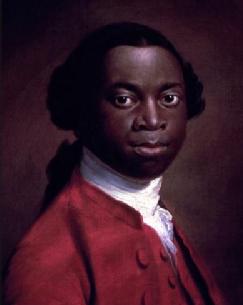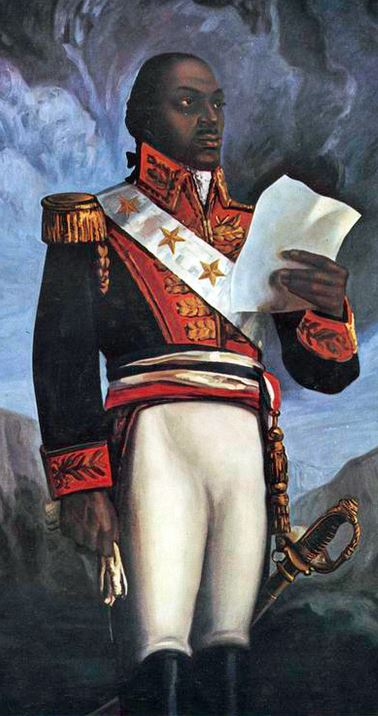Slave Narratives
What of those who have even less voice than white women in this period - at least some of whom were immensely privileged? What sources do we have for the interiority and the experience of those who were treated as radically 'other'? Although many people were involved in the emancipation of slaves and the abolition of slavery, it is important to find the authentic voices of slaves themselves which are often deeply hidden. Whose narrative voice speaks in Mary Prince? How far is Equiano capable of finding an authentic voice within the complex social and literary world at the end of the 18th Century?
Although the lecture will cover a number of these aspects, for the class students should read Mary Prince's narrative, along with the material that comes with it on the link below, and at least part of a male narrative. We will use the first session to explore exactly what is going on in the construction of Prince's famous narrative, and to reflect on questions of recognition and self-recognition and voice. In the second session we will discuss two modern commentaries - one dealing with the experience of subjection (Amery) and the other raising questions about the knowability of the experience of those consigned to the middle passage. We will also discuss - drawing on Amery and Stauffer - ideas of resentment, retribution and the problem of making amends.
You are asked to write a short essay: ´Using the lectures and the primary texts you have been reading write no more than 500 words answering ONE of the following thee questions.
´What is right or wrong about punishing people to exact retribution?
´What do the descendants of the dominant class owe to the descendants of those whom their forebears oppressed and exploited?
'How far can we do justice to the experience of the middle passage for the enslaved?'
The aim of the piece is to encourage you to make an argument and to allow me to give you some feedback on its clarity and cogency, thereby contributing to your writing skills. It is formative work - participation in the exercise is part of the participation assessment - but you are not being marked for its quality, but to help you develop your skills. The essay should be submitted to by e-mail to me on Friday of week 4. You may use this work again in assessed work and that will not be regarded as plagiarism.
Core Reading
The History of Mary Prince - http://docsouth.unc.edu/neh/prince/prince.html
See also:
'Mary Williamson's Letter, or Seeing Women and Sisters in the Archive of Atlantic Slavery', Diana Paton, Transactions of the RHS 29 (2019) 153-179.
Some memoirs of the life of Job, the Son of Solomon the High Priest of Boonda in Africa (London 1734) - probably the first narrative - taken down by Thomas Bluett. Available on ECCO (See library- databases)
First person account by Pomp, and the account of the Haitian Revolt,
James Albert Ukawsaw Gronniosaw (1770) Usually described as the first personal narrative of a slave (but see above).
Quobna Cugoano, (see http://abolition.e2bn.org/people_26.html)
Ignatius Sancho (see http://www.brycchancarey.com/sancho/)
John Marrant's Narrative
Equiano - http://www.gutenberg.org/files/15399/15399-h/15399-h.htm

Toussaint L'Ouverture - see his own Memoir
But see also Rainsford's Memoir

You Might also read https://www.theatlantic.com/magazine/archive/2017/06/lolas-story/524490/
and consider the insidious character of slavery in modern society.
For the second session the two key texts are:
Saidiya Hartman 'Venus in Two ActsLink opens in a new window' - about the killing of two slaved in transit to the West Indies. Although it is worth looking also at Nicholas Rogers book length account of the episode and its links to the ablition of the slave trade Murder on The Middle Passage (Boydell, 2020) (available as an e-book in the Library) - esp pp. 177-186 where he responds to Hartman.
The other text is Jean Amery's essay Resentment (in At the Mind's LimitsLink opens in a new window) - and you will also find a discussion of this in Stauffer's book Ethical Loneliness. Both these are available in electronic form through the library.
There's a discussion of Black British Writing from 1770-1830 in Ryan Hanley's Beyond Slavery and Abolition (CUP, 2019) - electronic copy through library - and - while you should read some first hand accounts - this might help in doing so.
Suggested Secondary Reading
For a selection of writings by black authors see Paul Edwards and David Dabydeen, Black Writers in Britain, 1760-1890 (avaliable at PR 1110.B5)
For a book that discusses slave narratives as both history and literature see The Slave's Narrative, ed by Charles Davis and Henry Louis Gates - avaliable as an ebookLink opens in a new window
But see also Achille Mbembe,Of the postcolony - chap 1 Of Commandement - available in an e-book at the library: https://encore.lib.warwick.ac.uk/iii/encore/record/C__Rb2667277__SAchille%20Mbembe__P0,9__Orightresult__U__X4?lang=eng&suite=cobalt
For articles/essays that focus on issues of authenticity, identity, and agency in Prince's narrative specifically see:
A. M. Rauwerda, 'Naming, Agency, and "A Tissue of Falsehoods" in the History of Mary Prince', Victorian Literature and Culture (2001), 397–411 (online)
Gillian Whitlock, The Intimate Empire: Reading Women's Autobiography, esp ch 1 (avaliable as an ebookLink opens in a new window)
In reading Mary Prince (and if possible a further narrative or two)
You should ask how far you think Prince's account is an authentic first person account of her experiences?
How far do you think this is a wholly candid account of her life to the point at which she recorded it?
What parts of the book surprised you most - or told you things you were unaware of?
In what areas of her life do you think she retained aspects of agency and relative freedom?
If we take Amery's view of his experiences - what reparation would Mary Prince have been owed?
What is owed to whom if the generation(s) who suffered are no longer alive?
